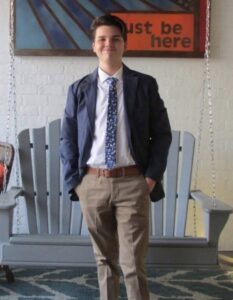A couple of weeks ago my 14-year-old son went to homecoming. This was a big deal to me. Because Corbin is deaf and uses cochlear implants to hear, socializing has been a struggle in the past. I am realizing that the past doesn’t define the future, and the way I have felt does not have to define the way I feel now or in the future.
Parents were emailing about the event, and as I was sharing with Corbin about the emails, he said, “Mom, you don’t need to tell them I am deaf!” I suddenly saw that what I once dreamed of and thought may be impossible was beginning to take shape. He was becoming his own advocate. He has been for a while, but I wasn’t letting go of my role as the same. I thought I could and would continue to protect him. I’m his mom. That’s my job. Right?
What will happen if my sweet boy gets wounded by the world? Maybe they won’t speak loud enough. Maybe he will get picked on. I think a better question would be, what if he didn’t? Who would I be without the most painful experiences of my life?
We do everything in our parental power to protect our children. Desperately wanting to prevent pain. Yet, pain is inevitable. All of my children have been hurt not only by the world but by people they love, including me. This idea of protecting them is simply a fantasy. Our children need pain to become who they are supposed to be. They will not escape this life without it.
There is a better way. Not that we don’t protect them when they need us, especially when they are very young, but we can stop constantly trying to fix every pain. Corbin has taught me the value of this. When he was younger he would ask why he had to be deaf. This caused so much angst for him. I doubt that he doesn’t feel that frustration sometimes still. My response, after realizing that engaging in group whining sessions were not beneficial at all, was to suggest that he imagine being in a situation that was harder for deaf children. I don’t think that was the best response but it was certainly better than continually engaging in “poor Corbin” mentality.
I now have better tools to teach Corbin and all of my children and grandchildren, which is choosing is to change their thoughts. He and only he is responsible for his happiness. He is in control of the thoughts that he thinks. He will have pain, but I can give him tools to deal with it when it comes. Yes, his eyes roll often, but I have no doubt in my mind that he hears me, literally and figuratively. Whether he applies the tools I give him for overcoming adversity or not, he has tools in his psychological tool belt. I am so thankful that my children will be able to manage their minds moving forward. This knowledge will not only affect them, but it will be transformational for generations to come.





